A small group of Republicans stopped Trump from becoming a dictator – they might not be able to do it again
As Donald Trump is denounced as a “fascist” who wants “unchecked power”, there are many who worry that violence could escalate if he loses the election in November. Richard Hall talks to those raising the red flags of what could happen next…
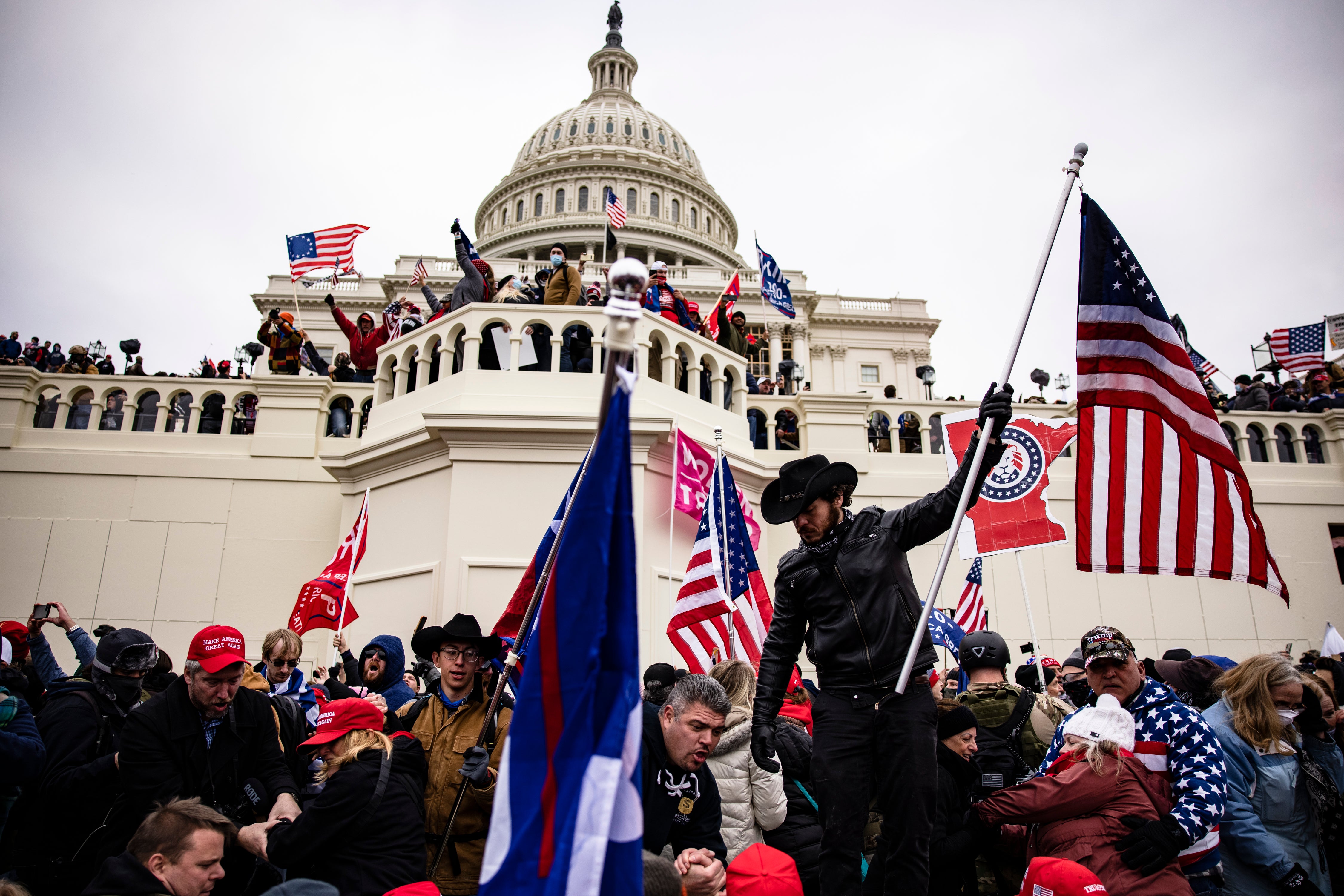
The Maricopa County Board of Supervisors covers an area of Arizona that includes the city of Phoenix and a swathe of rural and suburban land to the north and west.
Most of the time it concerns itself with things like animal control policy, city planning, housing and air quality. But in 2020, during a vote to certify the county’s elections, its five members found themselves on the receiving end of an attempt by president Donald Trump to steal an election.
“The pressure by the president and his many surrogates was all part of an effort to overturn the election,” says Bill Gates, a board member. “Looking back on it, it is chilling that that’s what we were in the middle of.”
His recounting of that pivotal moment in American history comes in a new documentary directed by filmmaker Dan Reed, which tells the full story of Trump’s attempt to steal the 2020 election. Trump’s Heist: The President Who Wouldn’t Lose hears from the Republican politicians and administrators who resisted those efforts, whom Reed calls “the thin red line”.
If they had yielded to the leader of their party, and country, the United States could have looked very different today. “These are minor cogs in the machine that suddenly become the key to throwing an election for Donald Trump,” Reed says.
“It’s told by people who voted for Trump and really wanted him to get back in. They were diehard supporters, arch-conservatives who loved his policies, and they’re the people who tell us how close Trump came to sedition,” he adds.
After covering the storming of the US Capitol on 6 January 2021, in a previous documentary, Reed worked backwards to uncover exactly what and who brought the mob to the gates that day. The attack on the Capitol building was not some freak occurrence, he says, but “the last, desperate move in a very, very long game” that started just after election day.
The documentary, shown on Channel 4 last month, tracks in granular detail the efforts by Trump and his cronies to turn the screws on anyone who had any power over the counting or certification of votes.
It begins in Maricopa County, the largest in Arizona, which quickly became the subject of a wave of conspiracy theories about the election: Sharpie pens, hacked voting machines and dead people voting to name a few. Those claims were investigated locally and by Trump’s own justice department, both of which found no evidence to prove the claims.
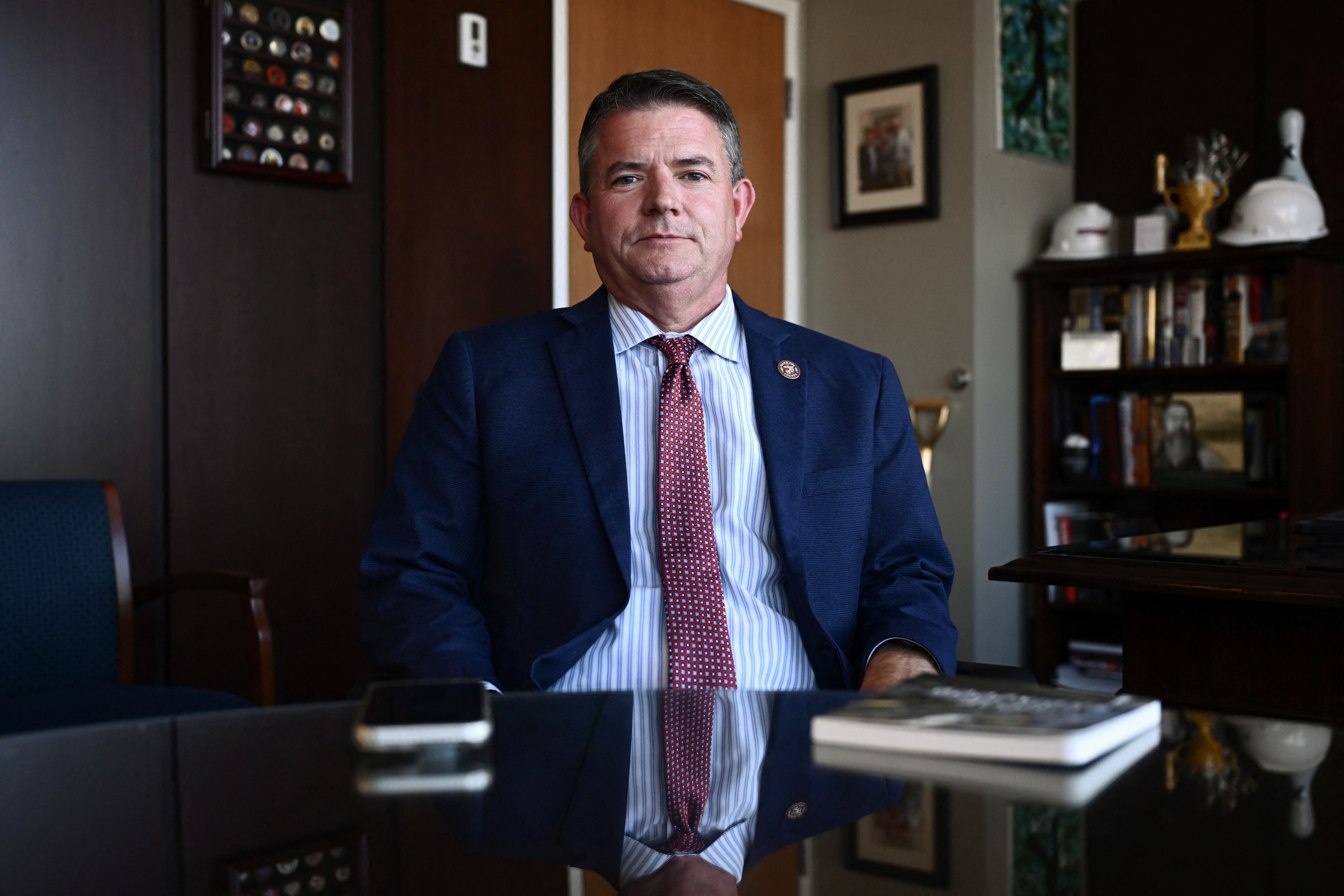
But Trump and his campaign could not, and would not entertain for a second the reality that they had lost. As they continued to spread false claims about the integrity of the vote count in Arizona, Gates and others on the board faced death threats. Nonetheless, they did their duty. The documentary shows the build-up and the finale of the dramatic board hearing where the five members — four Republicans and one Democrat – certified the vote unanimously in the face of overwhelming pressure.
“It was probably the most pressure-packed night of my life,” Clint Hickman, the Republican chair of the Maricopa County Board of Supervisors, says of the evening the five-member board certified the results from Arizona.
But it did not stop there. Over and over again, the film shows that it was Trump’s own supporters, in positions of influence over the elections, who rebuffed clear attempts to overturn a fair vote.
Once the Maricopa board had certified the results, Trump turned its attention to the legislature – specifically, Russell “Rusty” Bowers, the Republican speaker of the Arizona House of Representatives and former Trump surrogate.
“I do not like bullies,” Bowers says in the documentary, as he recounts a pivotal call from Trump on 22 November in which he “put the thumb” on him.
He too was sent thousands of emails containing threats to his life and his family’s safety. “I thought many times, this is my side,” Bowers says. “This is not the Democrats. They are just laughing. My side is coming after me.”
No one should know who the hell I am. The only reason you do is because something went terribly wrong somewhere
At the time Trump and his campaign were pressuring local and state officials to bend to his will, his White House was in disarray. Senior members of the Trump administration, who later denounced his effort to steal the election, speak of Trump’s worsening delusions.
William “Bill” Barr, Trump’s attorney general, who repeatedly had to answer Trump’s insistence that the election was stolen, says of the claims: “There was simply no talking sense to him. It became clear he was just listening to these lawyers on the outside of the government. They were filling his ears with this stuff.”
Trump’s campaign to overturn the Democratic win in Arizona ultimately failed, and so his attention turned to another close-run state: Georgia. Trump needed to overturn just one of these states to change the result of the election, and Georgia was his last chance. Here the campaign would become even more intense.
The state performed an audit of its results, which showed Trump still lost by around 12,000 votes out of nearly 5 million cast. Because the race was so close, it then did a recount, which gave the same result. In response, Trump set out to publicly tarnish and pressure the top election officials in the state, starting with Georgia’s secretary of state, Brad Raffensperger.
“He’s an enemy of the people,” Trump said of Raffensperger, in a public press conference at the White House on 26 November 2020, amid his push in the state.
The documentary also tells the story of these Republican local officials fighting back, knowing that democracy was at stake. One of them was Gabriel Sterling, elections operations manager in Georgia, who began to hold press conferences to hit back at the false claims.
“No one should know who the hell I am. The only reason you do is because something went terribly wrong somewhere,” he says in the documentary. He describes the repeated false claims being pushed by the Trump campaign as being like “whack-a-mole”.
“We would knock one down and three days later it would come back again,” he tells the programme makers. “It was not based on anything real.”
But Trump’s camp was unrelenting, possibly believing in the adage that repeating a lie enough allows it to become the truth. Back in the White House, Trump’s own officials were pushing back, too.
Throughout November Barr told the president repeatedly that he had in fact been looking at the claims of election tampering, and the claims were “bulls***.”
“He didn’t like that,” Barr says.
Barr went public with his concerns on 1 December, dealing an almost deadly blow to Trump’s efforts to overturn the election. But Trump was not to be deterred. His lies about the election being stolen were picked up by his supporters on social media and across the country. Trump had positioned himself as the anti-establishment candidate, the destroyer of the deep state – it all fitted nicely into the victimhood narrative he had been building since day one. “Stop the steal” became his supporters’ mantra, even though no evidence had emerged of the alleged theft.
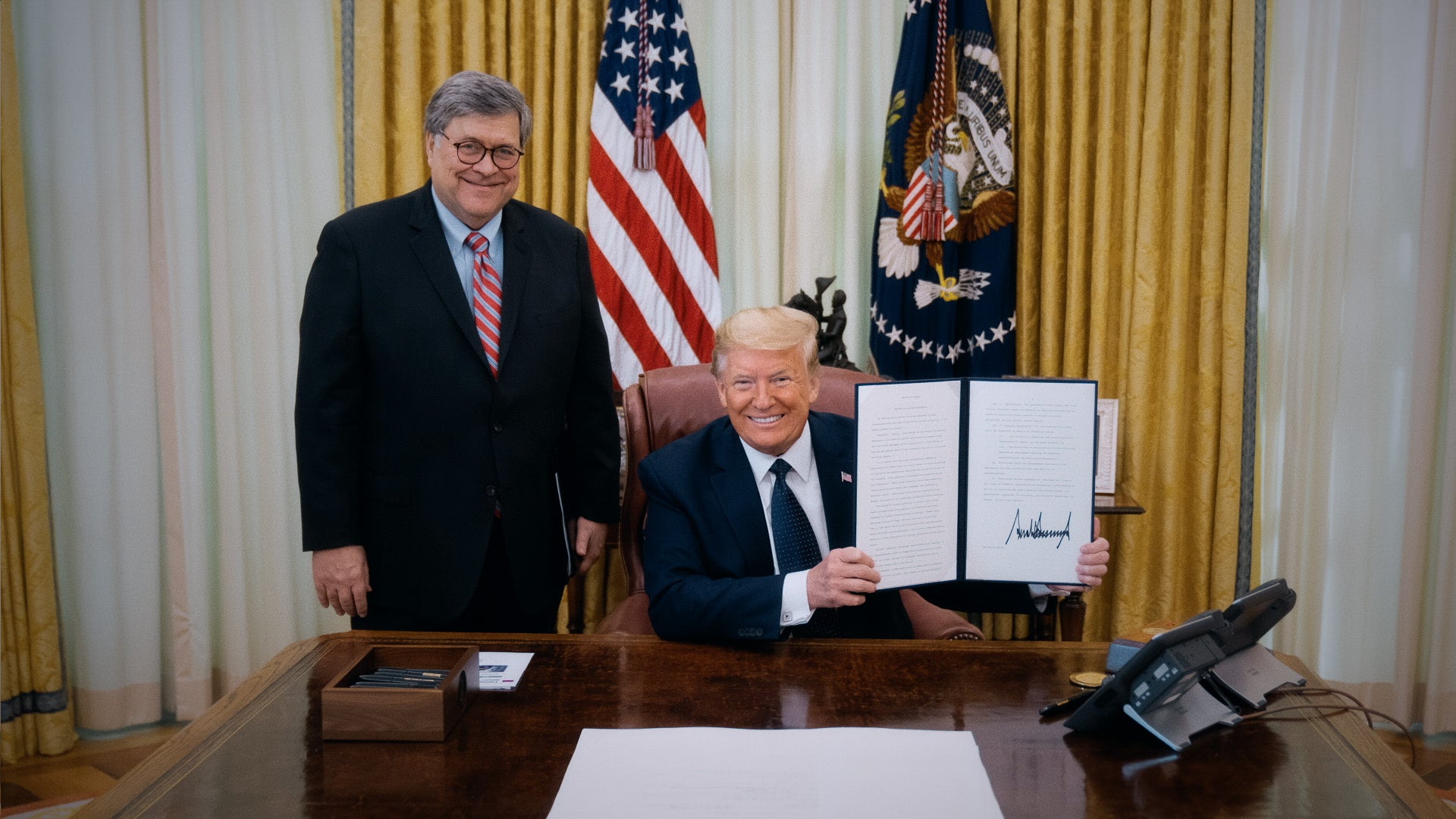
In the process of trying to overturn a free and fair election, the Trump campaign had managed to vilify the very people trying to protect democracy. The mood became darker and more dangerous. Armed gangs crowded outside of the Georgia state house for weeks. Sterling remembers looking outside the window of his office and seeing Trump supporters with AR-15s patrolling menacingly.
As they had done in Arizona, Trump and his allies turned the pressure on the Republican-controlled Georgia legislature. His efforts continued through December and into January, nearly two months from the 3 November election.
There was no legal pathway for Trump to overturn the results in Georgia, but he kept trying. The evidence Rudy Giuliani and his crew presented was repeatedly debunked by the state’s election officials.
Perhaps the most egregious episode of Trump’s efforts to overturn the election – besides the attack on the Capitol – came with his personal call to Raffensperger on 2 January to “find” the votes to help him win the state. The audio of the call was recorded by Raffensperger’s team and later became a key part of a state case brought against Trump for election interference that is still ongoing.
“All I want to do is this. I just want to find 11,780 votes, which is one more than we have,” Trump told him on the call. The response from Raffensperger: “We have to stand by our numbers. We believe our numbers are right.”
In a way, it’s a blueprint of what’s going to happen if Kamala Harris wins
The stage was then set for Trump’s “last, desperate move”, as Reed calls it.
Trump had failed to pressure state and local election officials. The results had been certified by the states and were on their way to being fully ratified by Congress. His only hope was to somehow disrupt the electoral college certification of the election – a procedural event that was scheduled for 6 January 2021.
As far as Trump saw it, one man could change the course of the disaster he faced and give him what he desired: his loyal vice-president, Mike Pence.
As vice-president, Pence presided over the certification of the results. That role – it has long been established – is a mere formality. Marc Short, Pence’s chief of staff, describes a tense meeting with Trump in which the vice-president was pressured to reject the electoral votes being cast for Joe Biden and hand the White House to Trump in one fell swoop.
“We know at that point that the president’s team was presenting a lie about what the vice-president’s authority was,” he says.
In the days leading up to the certification on January 6, Trump repeatedly called on Pence to “do the right thing” by rejecting electoral votes. The ever-loyal Pence met with his advisers and took outside advice from constitutional experts, but he simply could not see a legal way for him to do what Trump asked of him. Trump, meanwhile, painted a picture of doom for his supporters, of a last chance to stop a disaster.
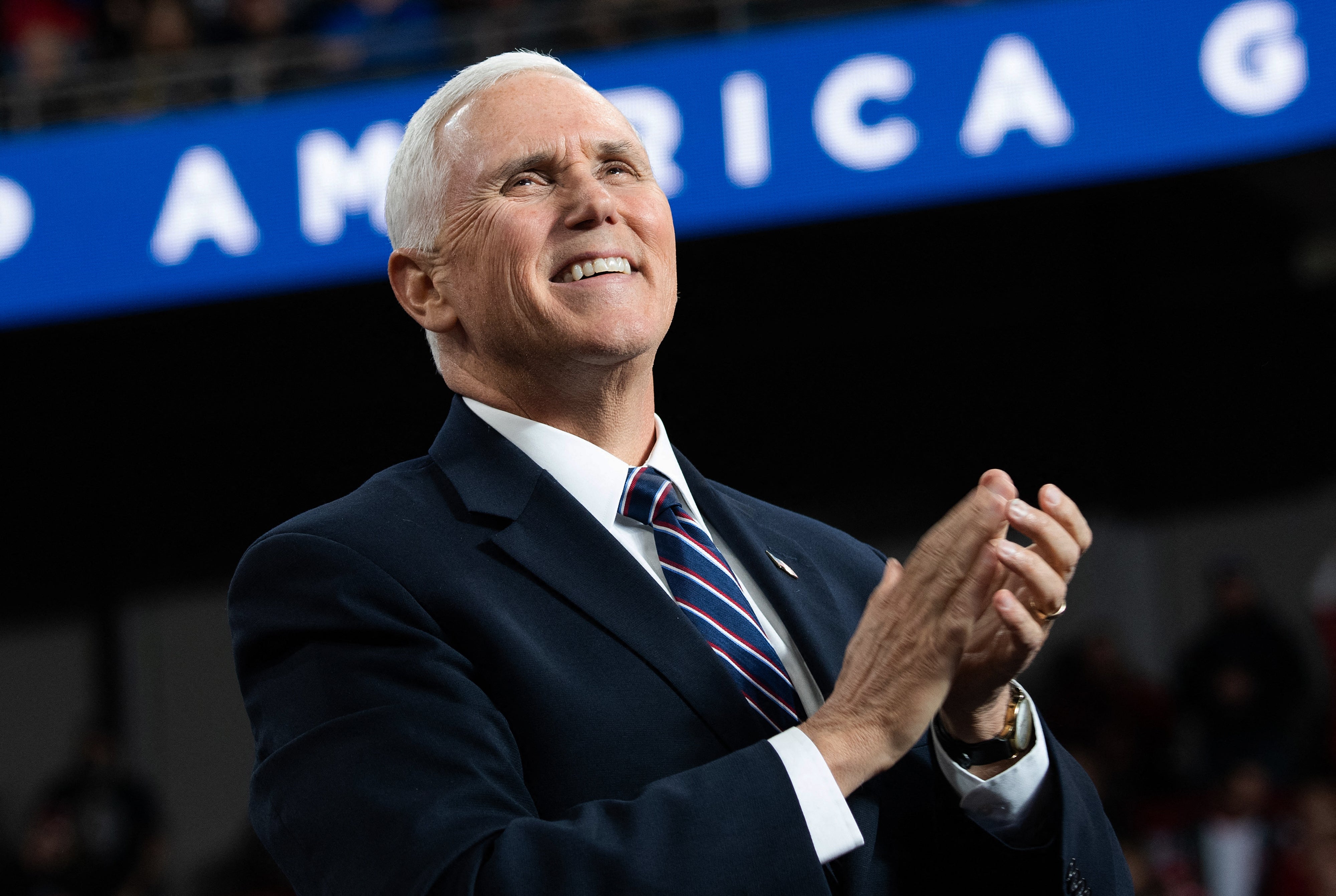
When that didn’t happen, and urged on by Trump’s incendiary speech on the morning of January 6 in which he called on them to “fight like hell”, his supporters took matters into their own hands. During the insurrection at the US Capitol, Trump’s supporters could be heard yelling: “Hang Mike Pence”.
In March, Pence told an interviewer at Fox News that this time around he would not be backing his former boss. He said: “It should come as no surprise that I will not be endorsing Donald Trump this year,” Mr Pence said after highlighting the conservative accomplishments of the Trump administration.
“But that being said, during my presidential campaign, I made it clear that there were profound differences between me and President Trump on a range of issues – and not just our difference on my constitutional duties that I exercised on January 6.”
As Americans are two weeks away from another election that is too close to call, the documentary contains warnings from those who knew Trump best about what could come next.
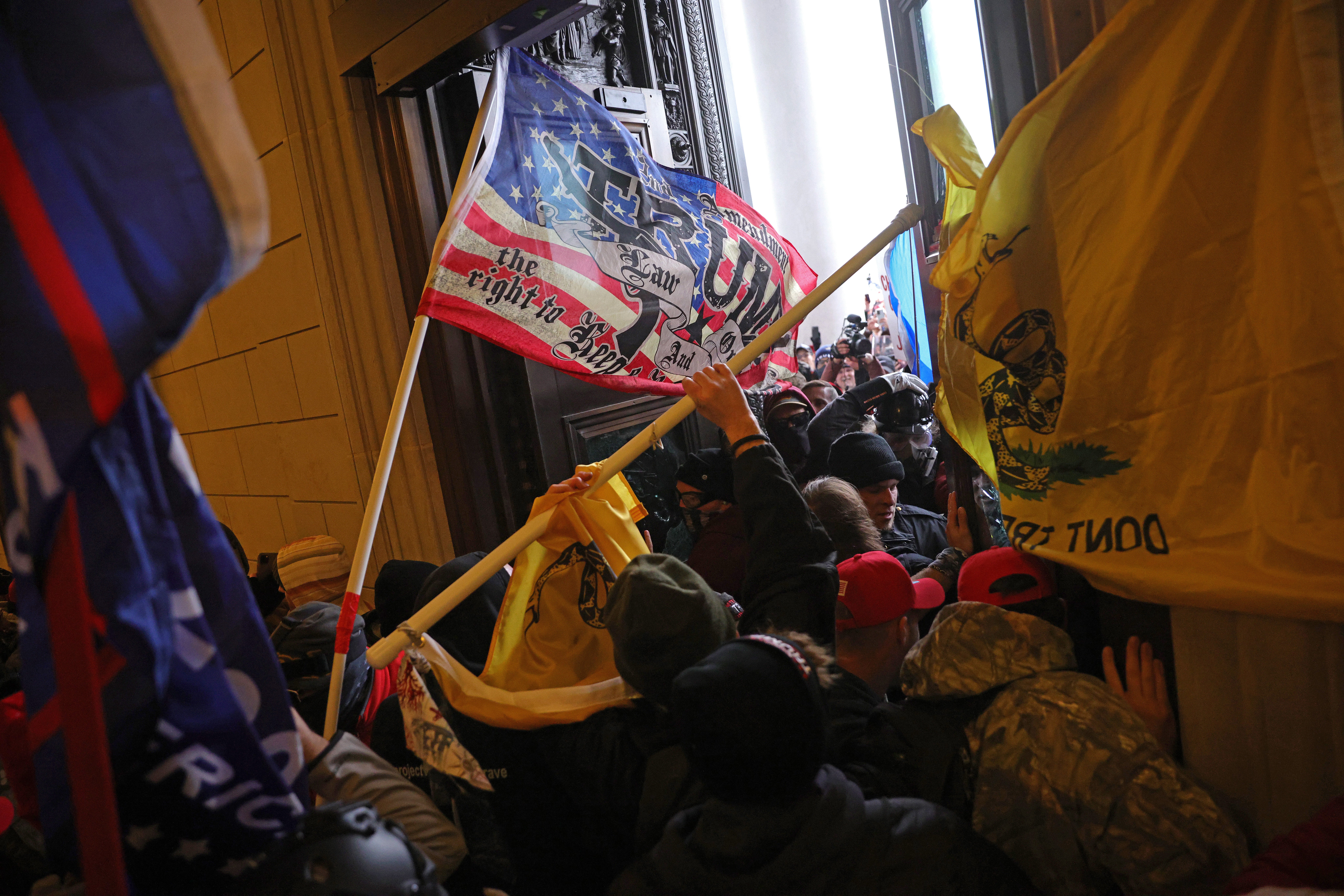
“If he loses, I don’t think you can expect that he’s gonna take it peacefully,” says Alyssa Farah Griffin, Trump’s former director of strategic communications.
“We’re in a very dangerous place heading into the next election. Of course he’s gonna claim it was stolen ... of course he’s going to incite his followers and his diehard followers to the exact same actions as last time,” she says.
This week Trump’s former chief of staff John Kelly told The New York Times that the former president praised Hitler multiple times, warning that the GOP candidate meets the definition of a fascist.
Kamala Harris responded to the reports in remarks at Naval Observatory, warning that the former president is “increasingly unhinged and unstable,” and in a second Trump term “people like John Kelly will no longer be there to rein him in.”
In a recent interview with the hosts of the podcast All-In, Republican vice-presidential nominee JD Vance of Ohio said that if he’d been vice-president on 6 January 2021, he would have gone along with Trump’s attempts to delay Congress’ certification of Biden’s victory. Many are now seeing this as a clear warning that, unlike Pence, he would be prepared to go along with whatever Trump wants him to do.
Reed sets out the same warning in his film, in that we need to learn the lessons from what happened on January 6. “In a way, it’s a blueprint of what’s going to happen if Kamala Harris wins,” he says.
“Huge amount of power shifts through these rather humdrum structures. And if you can just divert it a little bit, or throw a grain of sand in the works and stop the smooth working of all of these complex mechanisms of democracy, you end up bringing the entire thing to a halt.”
Subscribe to Independent Premium to bookmark this article
Want to bookmark your favourite articles and stories to read or reference later? Start your Independent Premium subscription today.






Join our commenting forum
Join thought-provoking conversations, follow other Independent readers and see their replies
Comments